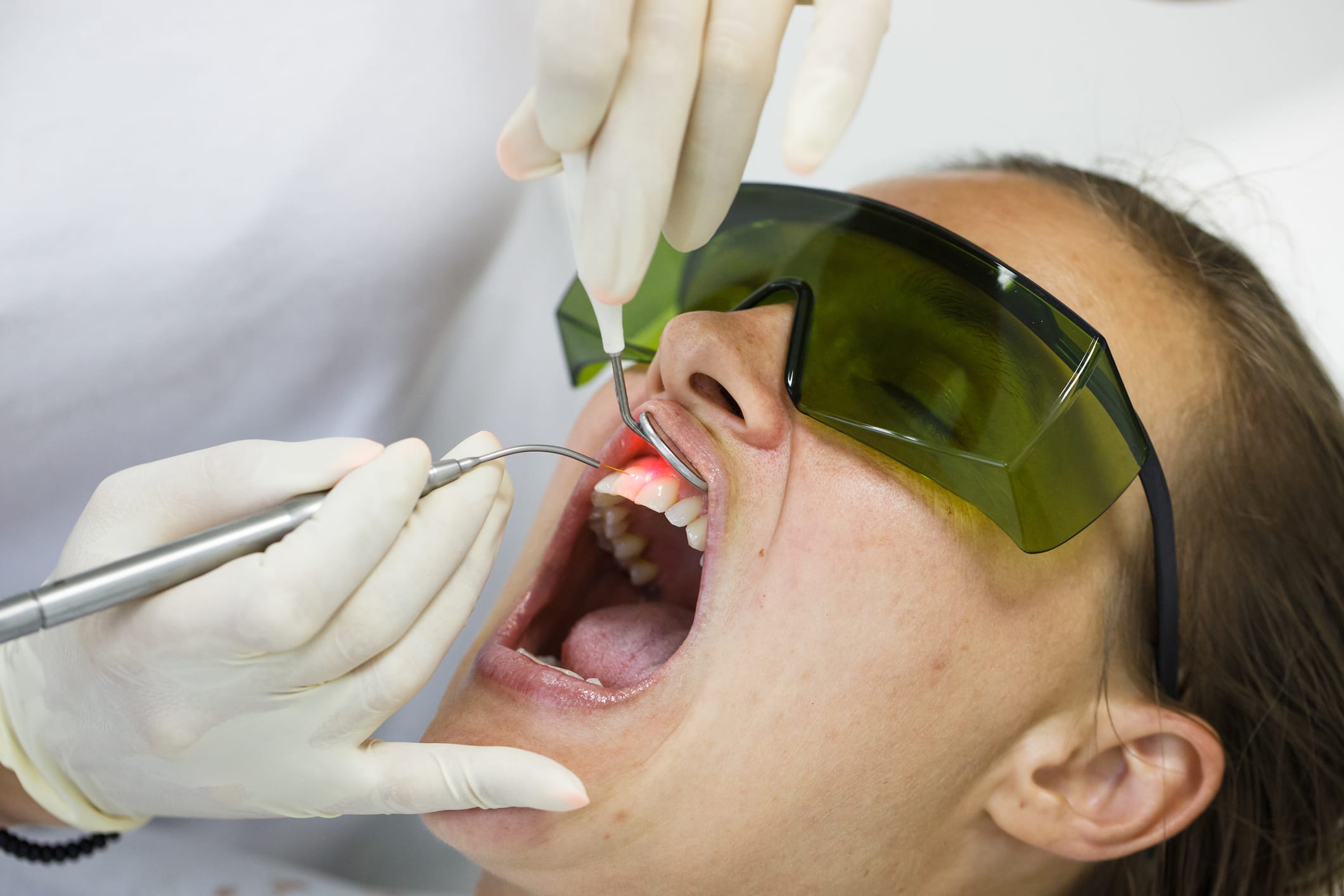Specialist periodontal treatments available at Pearl Dental Clinic
Treatment for periodontitis (gum disease)
There are many possible signs and symptoms a patient could experience during the development of periodontitis. Some of these include, bleeding, red or swollen gums, loose teeth, receding gums, and bad breath. Treatment for periodontitis is a specialised area and patients will, therefore, need to consult Dr. Sonum Patel. During the consultation, she can establish the extent of the issue and offer treatment accordingly. This may include deep cleaning and scaling for a thorough removal of plaque, or a periodontal surgery.
Treatment for gum recession
Gum recession treatment could involve some of the same techniques used for treating periodontitis, along with procedures such as gum grafting or bone regeneration. Gum recession could have a number of causes. Getting to the root of this cause can allow effective treatment. Whether the cause is bruxism, vigorous brushing, inadequate oral hygiene, or gum disease there are ways we can help.
Crown lengthening
Crown lengthening is a procedure to extend the visible size of the tooth. This treatment can also be performed to make it easier to attach a dental crown.
Gummy smile treatments
For people suffering from a gummy smile, there is laser gum reshaping treatment available which can totally change a person’s smile.
Laser treatments
Dr Sonum uses the latest soft tissue laser to provide treatments such as frenectomy and tongue tie correction in a totally painless and bloodless fashion, without the need for suturing.
Contact us for more on these treatments





